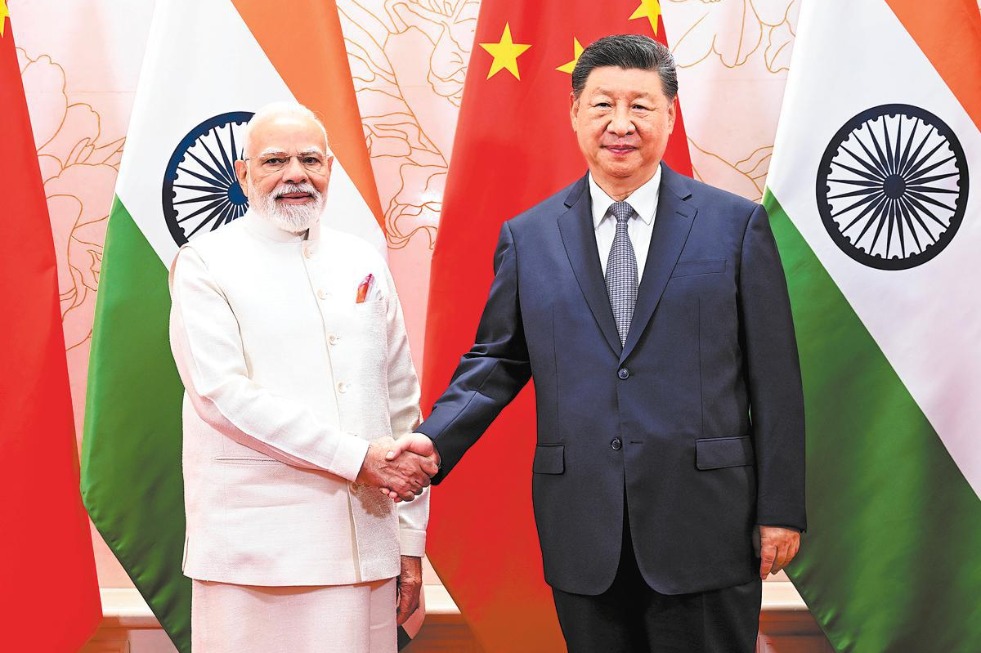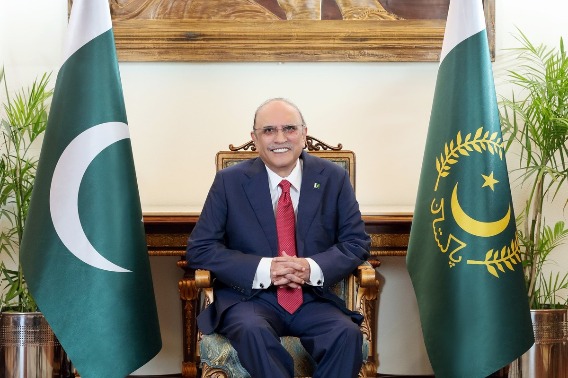Talks highlight the fact that cooperation benefits both sides, confrontation harms both: China Daily editorial

In an era marked by global economic uncertainty, the just-concluded China-US economic and trade talks held in Stockholm underscored a crucial principle of China's relations with other countries: collaboration over confrontation.
Chinese Vice-Premier He Lifeng's call for enhanced consensus, reduced misunderstandings and strengthened cooperation between China and the United States is a blueprint that can contribute to global economic stability.
The cooperative and mutually beneficial nature of Sino-US economic and trade relations is a major reason why the world's two largest economies can work together to settle their differences through consultations under the strategic guidance of the two heads of state.
According to Li Chenggang, China's international trade representative with the Ministry of Commerce, who briefed the media after the new round of economic and trade talks in Stockholm, the discussions were a candid and constructive examination of economic policies and trade issues, building on the frameworks established in the two sides' previous talks in Geneva and London.
The two sides also reviewed and affirmed the implementation of the consensus reached in the economic and trade talks in Geneva and the framework agreed on in their London talks.
That means although it was a major content of their exchanges to try and ease their strained economic and trade ties, the consultation in the Swedish capital encompassed a broader scope of topics that are of mutual concern and common interest.
Yet given the scope of their economic and trade differences, which range from specific industries and technologies to commerce and trade, expectations for the outcomes of the talks have been tempered by the pragmatic realism that no magic wand will resolve them all overnight.
That the two sides agreed to push for the continued extension by 90 days of the pause on 24 percent of the "reciprocal tariffs" of the US side, as well as countermeasures of the Chinese side, should therefore be taken as a positive outcome, as it helps prevent a reflare-up of the trade tensions that would be unavoidable were the previous deadline of Aug 12 remain valid.
A stable, healthy and sustainable China-US economic and trade relationship serves not only the two countries' respective development goals but also contributes to global economic growth and stability. The two sides' economic and trade teams should take the important consensus reached by the two heads of state during their telephone call on June 5 as a guide, and seek to further consolidate and implement that consensus and deepen mutual trust, as Vice-Premier He urged during the talks.
Vice-Premier He correctly emphasized that mutual respect, peaceful coexistence and win-win cooperation are the vital foundation for fostering an atmosphere of trust and partnership. That reflects the consistent Chinese position that Sino-US economic and trade relations should be mutually beneficial rather than a zero-sum game.
The International Monetary Fund has predicted stronger global economic growth than it forecast in April in part due to some US tariffs on goods being softened. Despite this, it warned on Tuesday that higher tariffs and more uncertainty could lead to weaker growth and slower economic activity.
The international community looks forward to the two largest economies returning their economic and trade relations back to the right track at an early date so as to inject more certainty, stability and predictability to the world economy and trade.
It is clear that the benefits of collaboration far outweigh the costs of confrontation. The US side has acknowledged the global significance of a stable China-US economic relationship.
Their differences should not be obstacles to their cooperation. The US business community is in a good position to know that point.
Almost at the same time as the Stockholm talks, a delegation from the US-China Business Council, led by board chair Rajesh Subramaniam and comprising the CEOs of some big US companies, was visiting China in an apparent attempt to take advantage of the window of opportunity offered by the signs of easing trade ties.
In his separate meetings with Foreign Minister Wang Yi on Wednesday and Industry and Information Technology Minister Li Lecheng on Tuesday, Subramaniam conveyed similar pro-cooperation messages. He applauded the Chinese government's pragmatic initiatives to support foreign businesses in China and pledged that the USCBC will remain steadfast in promoting the sound development of China-US economic and trade relations.
If the US really stands ready to work with the Chinese side to continue to stabilize bilateral economic and trade relations, as its delegation claimed in Stockholm, it should heed the counsel of its own business community and ensure its trade actions match its words.


































